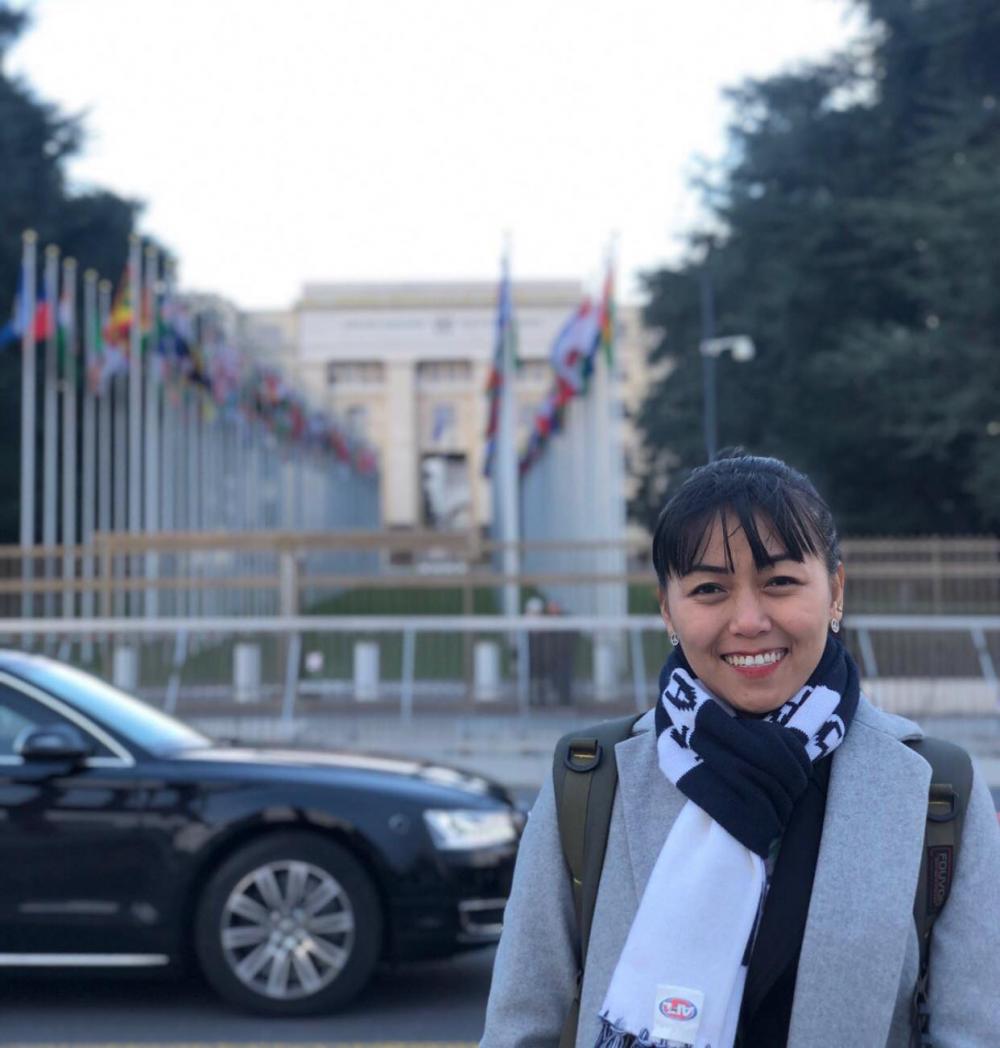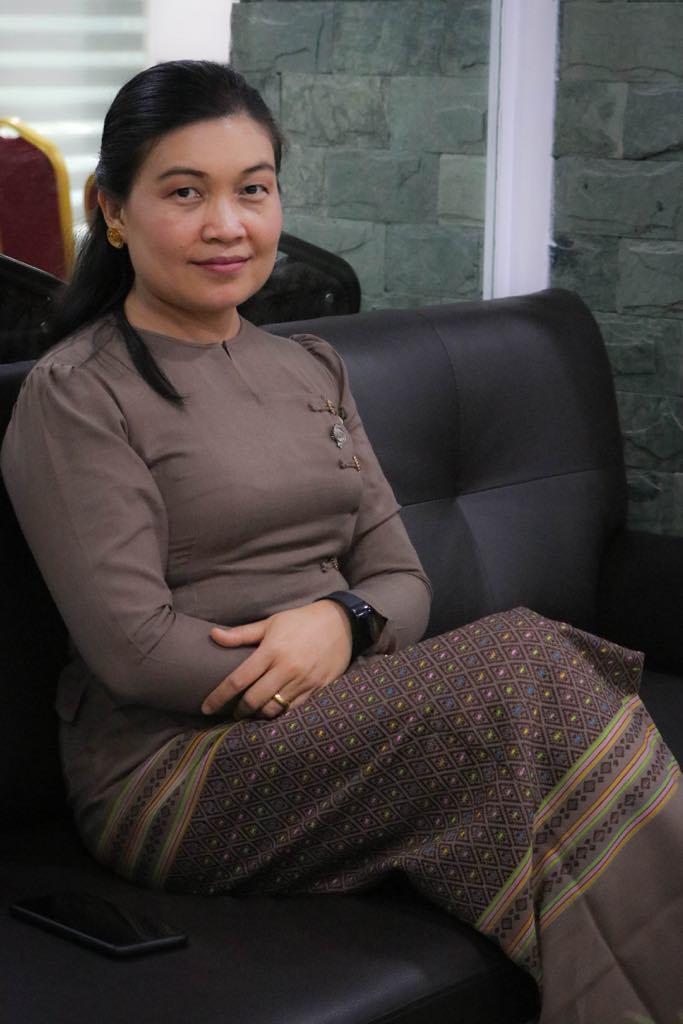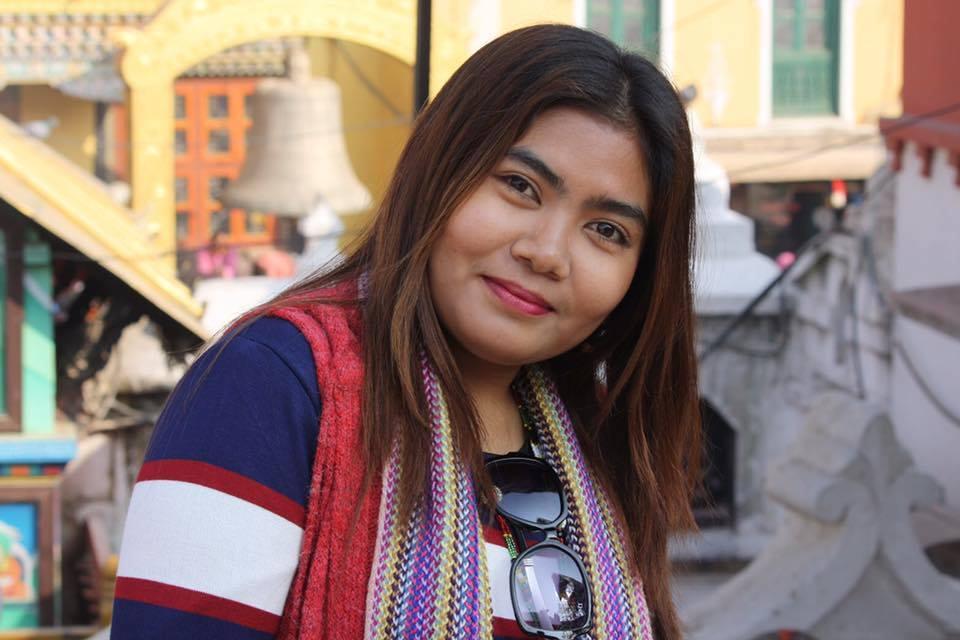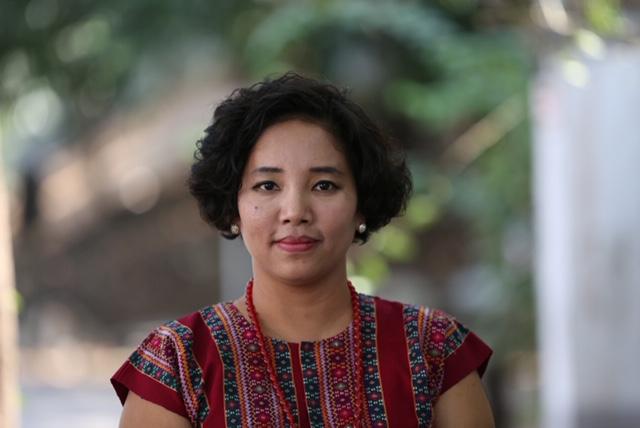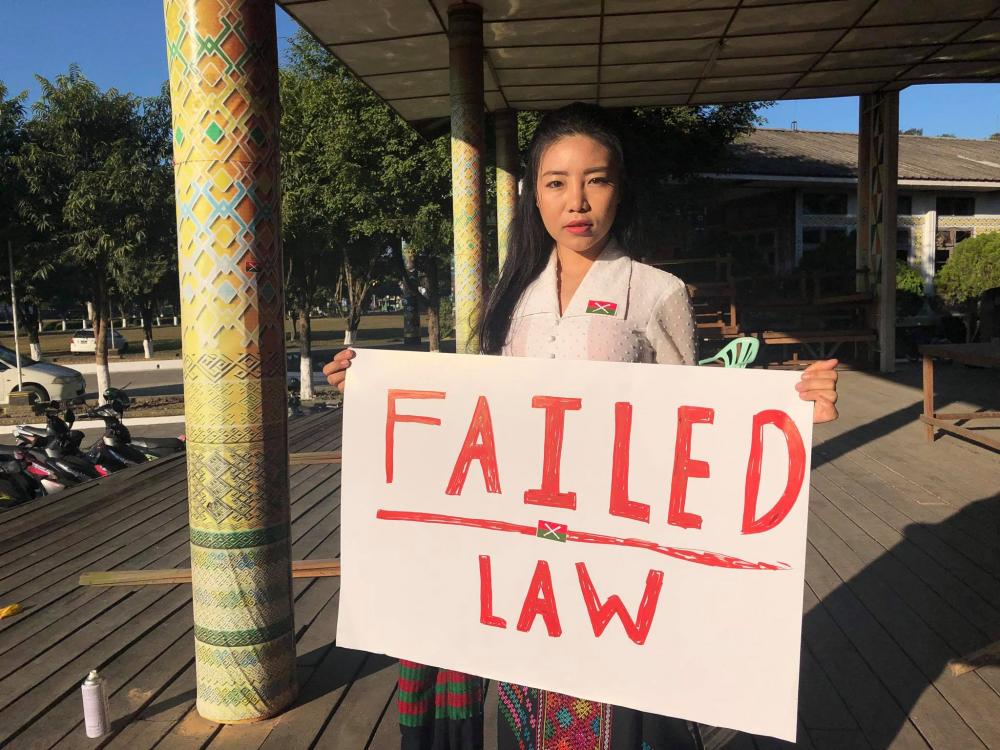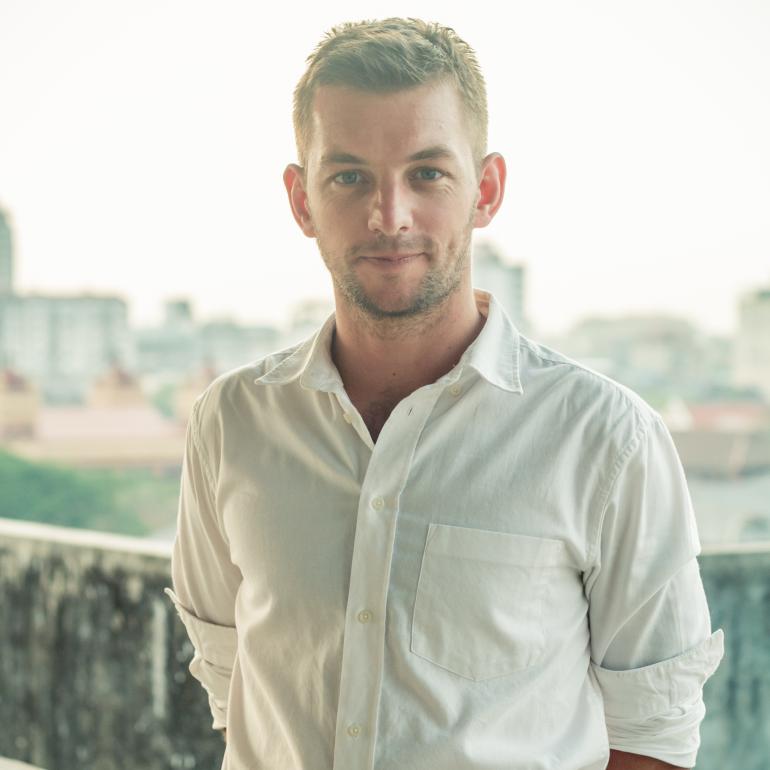Monday 13 April 2020
MYANMAR ARMY DETAINING THOUSANDS OF VILLAGERS IN RAKHINE STATE
Malaysia Detains Boatload of Presumed Rohingya Refugees Amid COVID-19 Fears
Malaysian authorities said they have arrested a boatload of 202 people believed to be minority Muslim Rohingya refugees after their boat was found adrift Sunday morning near the northern resort island of Langkawi.
A Northern District maritime official, Capt. Zulinda Ramly, said the refugees included 152 men, 45 women and five children. She said some of the migrants told officials that the boat's skipper and two others, believed to be behind the smuggling syndicate, had escaped while they were at sea.
Zulinda said maritime officials have taken precautionary measures to prevent any possible transmission of the COVID-19 virus while handling the group. The refugees were taken to the maritime office for further investigation before they are handed to the immigration department, she added. There were no further details on where the refugees came from.
More than 700,000 Rohingya fled to Bangladesh after a counterinsurgency campaign by Myanmar's military in the western state of Rakhine in response to attacks in 2017 by a Rohingya insurgent group. Bangladesh now hosts more than a million Rohingya refugees, and traffickers usually lure refugees by promising them a better life overseas.
Hundreds have been stopped by Bangladeshi coast guard officials trying to escape from one of the world's largest migrant camps.
In February, 16 Rohingya refugees from a Bangladeshi migrant camp drowned after the overcrowded boat that was supposed to take them to Malaysia capsized in the Bay of Bengal. With more than a million refugees tightly packed in the camp, aid workers are also concerned about a possible outbreak of the coronavirus, although there are no confirmed cases yet.
Buddhist-majority Myanmar has long considered the Rohingya to be "Bengalis″ from Bangladesh even though many of their families have lived in the country for generations. Nearly all have been denied citizenship since 1982, effectively rendering them stateless, and they are also denied freedom of movement and other basic rights.
Saturday 4 April 2020
Covid-19 And Rohingya Refugees – A Forgotten Issue
Written by: Journalist: Maung Maung Naing
Rohingya refugees are inaccessible not only from internet & phone service but also from medical support during corona virus locked down in Bangladesh
"As a Rohingya Sister with Australian Burmese background from Sydney, I am requesting all United Nation authorities, policymakers and Rohingya humanitarian activists that my Rohingya brothers and sisters are in desperate need of medical support, phone and internet access in refugee camps in cox bazaar." said Pan Sandar Myint
"Rohingya refugees are in the greatest risk during locked down of covid-19 because they are not receiving updated information of covid-19 from internet, phone and medical support service due to the internet ban by the Bangladesh government."
While people across the globe are staying at home comfortably by watching TV, using internet & getting easy access of medical support and latest information of covid-19, nearly one million Rohingya refugees are banned from internet and phone service to receive basic information about coronavirus. This lead them in prodigious risk to the virus because of not getting enough knowledge for precautions of the virus.
My team and I have done online research with three Rohingya youths who have shared struggling stories of refugees in the cox bazaar camp.
Abdul Rahim Phoenix Arizona, USA
 Abdul Rahim
Abdul Rahim
Yasor Arfat, cox bazaar, refugee camp of Bangladesh
Yasor Arfat is currently living in Bangladesh Rohingya refugee camp (cox bazaar). According to him, all refugees are safe and healthy. No one has infected from covid-19 yet. But there is no network and no medial support such as masks, gloves and hand sanitisers. He has learnt that the best way to safeguard from the virus is washing hands regularly and avoiding crowded places. But it is impossible to avoid from crowded places because they all live together in tiny crowded shelters. These shelters are too close to each other (less than 3 inches). They all share toilet and water well.
Maung Maung Naing, Bangladesh
Maung Maung Naing is currently residing in Bangladesh from Maungdaw, Buthithaung. He has lived in the camp and has faced inaccessible of internet. According to him, the Bangladesh government has banned the internet & phone service since 2019. It has restricted on aid groups by accusing on some NGOs of encouraging refugees to resist deportation. The Bangladesh army has started building fences with watchtowers to prevent refugees from leaving the strictly controlled camp areas. He is very worried about hard medical support system in the camp during this sensitive severe situation of covid-19. For 1 million Rohingya refugees, the Bangladesh has provided a few medical facilities in which all refugees need to queue in serial number in a large crowd to get treatments without following 1.5 metre social distancing procedure of covid-19 precaution. These people have no right to work there and cannot afford to buy masks and gloves as well.
Pan Sandar Myint, Ms World Australia National Finalist 2020
 Pan Sandar Myint
Pan Sandar Myint"Coronavirus is risky like a time bomb to Rohingya refugees" Being an advocate of my Rohingya family, I am extremely worried for my Rohingya brothers and sisters residing in the Rohingya refugee camp (cox bazaar) that they will face severe fatal situation if the virus has reached there. They have no updated and enough medical supplies, equipment, and health practitioners like in Australia, USA, Canada & UK. I am really urged all United Nation authorities, policy makers and humanitarian activists to stop Bangladesh government from banning internet and phone service to Rohingya refugees by enhancing on aid groups more with full medical supplies, medical support and qualified health practitioners before the virus has reached to the camp.
The folly of Aung San Suu Kyi’s ‘bad apple’ defence
Author: Adam Simpson, University of South Australia
Since the communal pogroms of 2012 razed the villages of Muslim Rohingya across Myanmar's Rakhine State, there have been debates about how to protect Rohingya populations through international legal mechanisms. The search for legal avenues gathered pace following insurgent attacks by the Arakan Rohingya Salvation Army in August 2017 that resulted in a disproportionate collective punishment response from the Myanmar military. This saw the slaughter of thousands of unarmed Rohingya and over 740,000 people fleeing to Bangladesh.
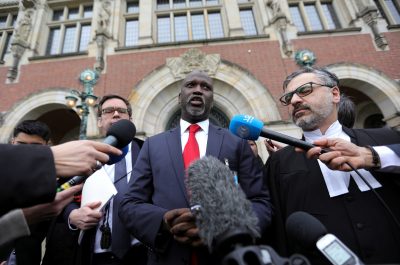
The most promising avenue to date has been through the International Court of Justice (ICJ) in The Hague. On 11 November 2019, the Republic of The Gambia filed an ICJ application to start proceedings against Myanmar for violations of the Genocide Convention.
Another international legal option is to prosecute the Commander-in-Chief of Myanmar's military Senior General Min Aung Hlaing and other military leaders at the International Criminal Court (ICC). But there are difficulties with this approach. Myanmar is not party to the Rome Statute, which created the court, and any attempt to force the ICC to take a case like this one through the UN Security Council would likely be vetoed by China and Russia.
Since Bangladesh is party to the Statute, and the Rohingya crossed the Bangladesh border, the ICC ruled that it had jurisdiction over the case. In November 2019, the ICC approved a full investigation into allegations of 'systematic acts of violence', deportation as a crime against humanity and persecution on the grounds of ethnicity or religion against the Rohingya. By February 2020, investigators from the ICC Office of the Prosecutor visited Rohingya refugee camps to collect evidence for their case.
As the ICC case gathered pace, the initial hearings of the ICJ case in The Hague in December 2019 provided more spectacular imagery for the world's media. With an eye firmly on the forthcoming November 2020 national elections, Nobel Peace Laureate and Myanmar's de facto leader Aung San Suu Kyi personally travelled to the ICJ to defend the actions of the military and the Myanmar state against charges of genocide. There is little sympathy for the Rohingya in Myanmar. Ever since the 2012 pogroms, when the United Nations and aid agencies were seen as being overly sympathetic to Muslims and the Rohingya, there has been a nationalist antipathy to what is perceived as international meddling in Myanmar's domestic affairs. Aung San Suu Kyi's ICJ defence was interpreted as defending the nation and was supported by large rallies throughout the country.
While giving evidence to the ICJ, Aung San Suu Kyi admitted that 'it cannot be ruled out that disproportionate force was used by members of the defence services in some cases, in disregard of international law'. She insisted that any breaches would be investigated internally. This 'bad apple in the military' defence was debunked by evidence that demonstrated the erasure of Rohingya communities was systematic.
Internal judicial redress within Myanmar has been ineffectual. There have been several internal inquiries, all of which have cleared the military of any systematic crimes despite overwhelming evidence to the contrary. The government-appointed Independent Commission of Enquiry (ICOE) did find that security forces and civilians committed war crimes and violated human rights in Rakhine State but held that these were rogue elements acting in isolation rather than reflections of a more systematic policy.
In late January 2020, the Court declared that The Gambia had established prima facie a breach of the Genocide Convention. It issued several urgent measures to Myanmar to prevent further acts related to breaches of the Convention and the destruction of evidence. Myanmar is to provide regular reporting to the Court on measures undertaken. The Gambia has until 23 July 2020 to submit its full case and Myanmar has until 25 January 2021 to submit its response.
The ICJ has no power to enforce its judgements and compel a state to take action. It relies on the UN Security Council to support its judgements. As key allies to Myanmar, China — with its veto power at the Security Council — along with Vietnam refused to agree to a statement compelling Myanmar to comply with the Court's instructions. Although the Court's decision was celebrated by Rohingya refugees in Bangladesh's camps, the limited powers of the ICJ mean that little may change on the ground.
The Myanmar government, led by the National League for Democracy (NLD) and Aung San Suu Kyi, has no oversight over the military and Senior General Min Aung Hlaing. But Aung San Suu Kyi is the only person capable of communicating the suffering experienced by the Rohingya effectively. Her silence on the military's brutality and her attempts to exculpate it from wrongdoings is normalising what, under any reasonable assessment, constitutes ethnic cleansing, crimes against humanity and perhaps even genocide.
Myanmar's politics is complex and fraught. After years of military rule, the path to democracy was never going to be smooth. But without the support of Aung San Suu Kyi, it is difficult to see justice for the Rohingya emerging anytime soon, with the potential of a coronavirus (COVID-19) outbreak in the refugee camps increasing the urgency of action. The NLD government needs international support to transform the country economically and politically. The pursuit of justice and democratic development in Myanmar will also require deeper engagement by Western companies, governments and NGOs. Right now, this pursuit is being left to the vicissitudes of foreign investment and diplomacy with China.
Foreign governments need to apply pressure on both the government and the military so that they adhere to international norms whenever they deal with Myanmar's ethnic communities, regardless of that community's perceived place and legitimacy in some mythical nationalist past.
Adam Simpson is Senior Lecturer of International Studies in UniSA Justice & Society and Program Director, Master of Communication, in UniSA Creative, The University of South Australia.
Why Myanmar couldn't rise to meet the world's expectations
Some say the country's real, long-term problem is the military, to say nothing of the image of de facto leader Aung San Suu Kyi
 Military representatives queue to cast their votes to amend the 2008 Constitution at Union parliament on Tuesday, March. 10, 2020, in Naypyitaw, Myanmar. AP
Military representatives queue to cast their votes to amend the 2008 Constitution at Union parliament on Tuesday, March. 10, 2020, in Naypyitaw, Myanmar. APMyanmar's atrocious treatment of its Rohingya minority has justifiably led to the country's public image taking a battering, as has that of its de facto leader, Aung San Suu Kyi. Now it appears to some that Myanmar's transition to democracy, which Ms Suu Kyi personified to her former admirers, is also in trouble.
Last week, her ruling National League for Democracy party began a series of votes that aimed to amend the 2008 constitution, which allots 25 per cent of parliament's seats to the armed forces, known as the Tatmadaw, and gives them an array of other powers, such as control of three crucial security ministries and the effective ability to declare a state of emergency.
What nearly everyone underestimated was just how strong ethno-religious nationalism would prove
This certainly looks like a blow to Ms Suu Kyi's ambitions, which are considerable. She has ruled the country as "state counsellor" since 2016, but she is not the head of government.
 Members of parliament from National League for Democracy (NLD) party, led by Aung San Suu Kyi, wearing protective face masks arrive to attend the Assembly of the Union at the parliament building in Naypyitaw, Myanmar, 10 March EPA
Members of parliament from National League for Democracy (NLD) party, led by Aung San Suu Kyi, wearing protective face masks arrive to attend the Assembly of the Union at the parliament building in Naypyitaw, Myanmar, 10 March EPAWhether the Tatmadaw's rejection of constitutional changes is a setback to the transition to democracy that the world was expecting is another question. In his second volume of biography on Ms Suu Kyi, The Lady and the Generals, published in 2016, Peter Popham wrote: "If Suu determines that no other reforming work can be done until the constitution is changed, Burma could find itself seriously stuck. That would damage her reputation, both at home and abroad."
 Myanmar State Counsellor Aung San Su Kyi attends the Myanmar Ethnics Culture Festival in Yangon on February 1, 2020. AFP
Myanmar State Counsellor Aung San Su Kyi attends the Myanmar Ethnics Culture Festival in Yangon on February 1, 2020. AFPThe key here is what the world was expecting, both in terms of Myanmar's transition and as to how Ms Suu Kyi would rule. We all know how wrong everyone was about the no-longer-saintly Ms Suu Kyi.
But Mr Zarni's assessment of the Tatmadaw and its unwillingness to cede its political, commercial and military place in the country has proved correct. What nearly everyone underestimated was quite how strong ethno-religious nationalism would prove.
Western admirers heard Ms Suu Kyi praising universal values, and assumed the Oxford-educated former icon was talking the same language as them. But as Michal Lubina, author of The Political Thought of Aung San Suu Kyi, puts it, for her "Western-based institutional understanding of democracy, with checks and balances… plays a secondary role" to "traditional Burmese Buddhist thought patterns".
Unity, based on the language, culture and religion of the majority Bamar (or Burman) ethnic group, comes first. If this comes at the expense of minority groups and the rights of individuals, neither Ms Suu Kyi nor Myanmar's voters appear to mind very much. The dominance of this political culture, and the permanent entrenchment of the Tatmadaw, may not have been the transition Ms Suu Kyi's former admirers were expecting. But if she is in tune with her countrymen – and all signs are that she is – then "democracy, Myanmar-style" may be the reality for years to come.
Updated: March 18, 2020 02:04 PM
5 female activists who are changing Myanmar
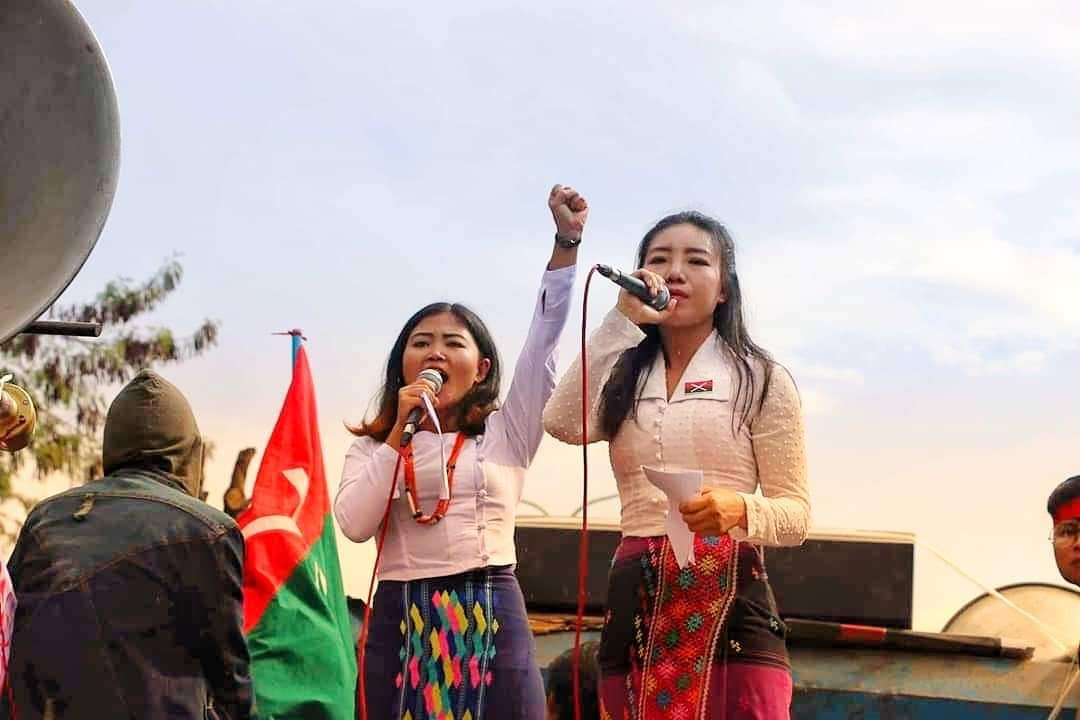
Sut Seng Htoi (right), a Kachin youth activist. (Kachin Youth Movement)
To mark International Women's Day, Myanmar Mix spoke to five inspirational women who are leading conversations on some of the country's most critical issues.
Thinzar Shun Lei Yi
One of Myanmar's most prominent peace activists, Thinzar Shun Lei Yi, 28, was raised in a military family.
Her father, a Tatmadaw officer, moved the family every two years across Myanmar, living in Rakhine and Mon states among other locations, while Thinzar Shun Lei Yi attended mostly military high schools, Bamar Buddhist institutes where Tatmadaw jingoism seeps through the curriculum.
Though sometimes she sat in more diverse state school classrooms, it wasn't until the family settled in Yangon a decade ago that the activist truly challenged the military's ideology through discussions with former political prisoners, the children of ethnic leaders, and other open thinkers on democracy and human rights at the American Center.
"Within 10 years I have completely changed myself," she says. "I take that as my victory."
Such a transformation of mind in her formative years has nurtured a critical view of the mainstream.
As Myanmar leaders once considered revolutionary donned suits and prefixed their names with government titles, she saw heavy compromise for power, blind loyalty to idolized figures, and distraction from the ultimate focus: building a tolerant, peaceful society.
Thinzar Shun Lei Yi threw herself into the youth movement, as president of Yangon Youth Network, as organiser of the inaugural Myanmar Youth Forum, as coordinator of the National Youth Congress.
Currently the advocacy coordinator for Action Committee for Democracy Development and host of a popular youth talk show, the Sagaing-born activist has made a name for herself internationally.
For her message of equality, her father's colleagues have criticized and blamed him. With fertile ground for arguments, family talks seldom involve politics, and when a topic does erupt, Thinzar Shun Lei Yi brings it back to the Buddhist concept of universal love, which usually seems to work.
In fact, she said, when it comes to conflict, her father has now come round to her way of thinking.
May Sabe Phyu
A draft law protecting women and girls is progress in the eyes of Gender Equality Network director May Sabe Phyu, 43—but it has flaws.
"It will provide some level of protection at least," says the longtime activist.
Unlike the vaguely worded Penal Code, the Protection and Prevention of Violence against Women Law gets specific when it comes to violence, such as domestic abuse or sexual harassment in the workplace.
Yet the draft legislation still follows the colonial-era law's definition of rape, "which is not comprehensive and does not follow the human rights code," she explains.
May Sabe Phyu has pushed for the law since its conception—she understands the dangers women face in Myanmar better than most.
Her father, a Burmese Buddhist, and her Kachin Christian mother raised her in northern Myanmar, where she recalls witnessing "a lot of discrimination, oppression" and damage caused by decades of conflict between the Myanmar military and ethnic armed group, the Kachin Independence Army (KIA).
She moved to Yangon at the age of 11 but stayed connected with her roots, making it her mission to support internally displaced persons (IDPs)—especially women.
While caring for HIV/AIDs patients, she co-founded the Kachin Women Professional Network and the Kachin Peace Network in 2011, and the Kachin Women's Peace Network in 2012.
These organisations act as a bridge between those who have fled to camps and the rest of the world, providing support, funds, and information.
When fighting intensified in 2012, May Sabe Phyu joined an anti-war march on International Peace Day and, along with fellow organisers, was arrested.
After 14 months of court proceedings following charges in several townships, the case resulted in a fine and presidential amnesty, but worse was to come for her Kachin husband, Patrick Kum Ja Lee.
In October 2015, the Tatmadaw accused him of sharing on Facebook a photo of a man in Kachin-style longyi standing on the head of the Myanmar military chief.
He was released after six months in Insein Prison, by which time May Sabe Phyu had challenged so-called race and religion laws proposed by Buddhist hardline nationalists that were criticized for attempting to curb interfaith marriages.
As a result, the mother of three received death threats and violent images over the phone. Her personal details and contact number were posted on an escort website.
"We received a lot of phone calls, some people sent us Viber messages of nude photos, dirty messages. We had to change our numbers again and again," she says.
The threats and harassment she could take, but more painful was the sense of insecurity clouding over her family. She consoles them by saying they are standing for justice and the good of the people.
"Everybody has only one life," she adds. "I just don't want to stop because I am afraid."
Khin Sandar Tun
Kyaukphyu often makes headlines these days for its proposed deep sea port—a key part of China's global trading strategy—but amid inter-communal unrest eight years ago local Muslim residents were thrown into muddy camps, where many are confined to this day.
Khin Sandar Tun, 31, was studying in Yangon when rumours reached her hometown that Muslim men had raped a Buddhist woman. Her grandparents were still there; a mob burned down their house and they fled on a boat to Sittwe
Despite being Kaman Muslim, an officially recognized minority in Myanmar, they have been reduced to second-class citizens and now live in a camp.
Khin Sandar Tun lobbies the government to return the displaced people to their homes, including her 89-year-old grandfather whose health is deteriorating.
But what really galvanised her into action was the death of reporter Ko Par Gyi, who was covering conflict in Karen state when he was tortured and killed in military custody in 2014.
That year Khin Sandar Tun took part in a demonstration demanding justice for the journalist. She has since travelled around Myanmar promoting civic engagement, coordinated for the Peace Cultivation Network, and spoken publicly on peace and tolerance.
In May 2018 she was arrested and charged in Bahan township court under the peaceful assembly law for her role in an anti-war protest highlighting the plight of Kachin IDPs.
The case is still on-going for the leading interfaith activist, who is concerned about the future of her country.
"[The government] said Myanmar is going forward towards a federal democracy but their thinking is not federal at all," she says. "The Rakhine situation is looking as dire as ever."
Cheery Zahau
This year may see the political resurgence of Cheery Zahau, a 38-year-old mother of two and longtime champion for Chin people.
"My kids are still small; at the same time there are so many issues that need to be sorted out on the ground," she says.
The activist leads the finance team for the Chin National League for Democracy (CNLD) and develops gender policy for the party, which proposes at least 30 percent of its candidates will be women.
Her other roles include Myanmar programme director for US-based think tank Project 2049 Institute and independent researcher on sexual and gender-based violence.
But Cheery Zahau is increasing her CNLD work ahead of the late 2020 election in the hope of taking a more political—yet so far undefined—post if the party performs well.
Though she lost the 2015 election's Falam township seat for the lower house of Parliament to a National League for Democracy (NLD) candidate, Chin people still discuss local issues with her: property and vehicle registration, land rights, freedom of religion, road infrastructure, and open border trade; the list goes on.
She also wants to tackle a customary practice of blocking women from inheriting the property of their fathers or husbands.
"When it comes to the community, we don't listen to women, but then we give women the responsibility to take care of the whole family," she says.
In 2003 Cheery Zahau worked for a Chin women's organisation in the northeast Indian state of Mizoram when a Myanmar man was accused of raping a local woman.
"They went after all the Chin residents," she recalls. "It lasted about four months. About 20,000 people were pushed back to Chin state, some of them died on the way back due to malaria, giving birth, and infections."
Her office became a shelter for displaced people and she became a devoted political activist.
"I feel injustice is everywhere and I can really do something about it," she says.
In 2004 she founded the Women's League of Chinland, an umbrella organisation of Chin groups, and documented military rape against Chin women.
Her work made her a target for threats and surveillance, so in 2009 she moved to Thailand to study human rights and returned in 2012 to Myanmar, where she has watched a slow and incomplete transition to democracy.
"I don't think the NLD lived up to their promise," she says. "They make some progress, but it is one step forward and two steps back."
Sut Seng Htoi
"Every Kachin wants self-determination and every Kachin wants a new political system," says Sut Seng Htoi, 26, a youth activist from the mining region of Tanai township.
Her own village was abandoned because of conflict between the Tatmadaw and the KIA in 2018.
Though Sut Seng Htoi at the time had already moved to Kachin capital Myitkyina, she began working at a grassroots level to help people who fled the violence—a show of commitment that was recognized by a US-based network of donors and volunteers, who last year gave her the Citizen of Burma Award.
"The government took no action for their people," she says. "That is the biggest reason why I became an activist."
As the Kachin National Youth Network general secretary, she advocates for education, health and social needs of the IDPs.
Many were trapped in forests without enough food or water when the conflict intensified in April 2018, pushing Sut Seng Htoi and other activists to call for government intervention to rescue the displaced people.
No response came, she said, so they applied for permission to hold a protest. That wasn't granted, either, but the activists still demonstrated besides a government compound in Myitkyina.
"At the time we were thinking not about permission but about the people who were trapped in a war zone," she says.
She was charged and paid a 30,000 kyats (US$22) fine under the peaceful assembly law as well as another 60,000 kyats ($42) fine when she held a protest later in the year.
Most of Kachin's problems, such as widespread drug abuse and environmental harm, can be traced to the conflict, she explained.
In turn, the conflict spawns from the desire for a federal democracy, she said, which bolsters the ranks of the KIA and leaves women to take responsibility for the whole family.
With this year's election, the status quo is unlikely to change, she predicted, because Kachin political parties are unprepared while the ruling National League for Democracy is more organised.
"Kachin parties should spread their message more," she says. "They need a strategy that considers the needs of the people."



